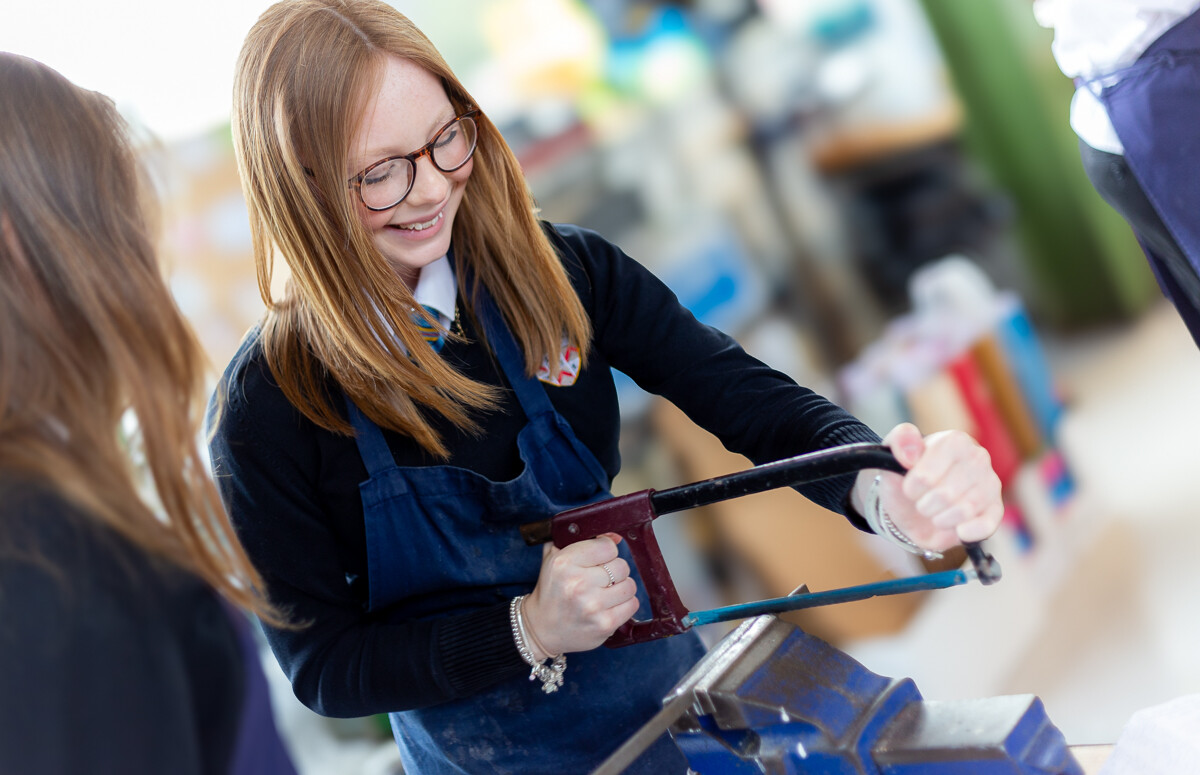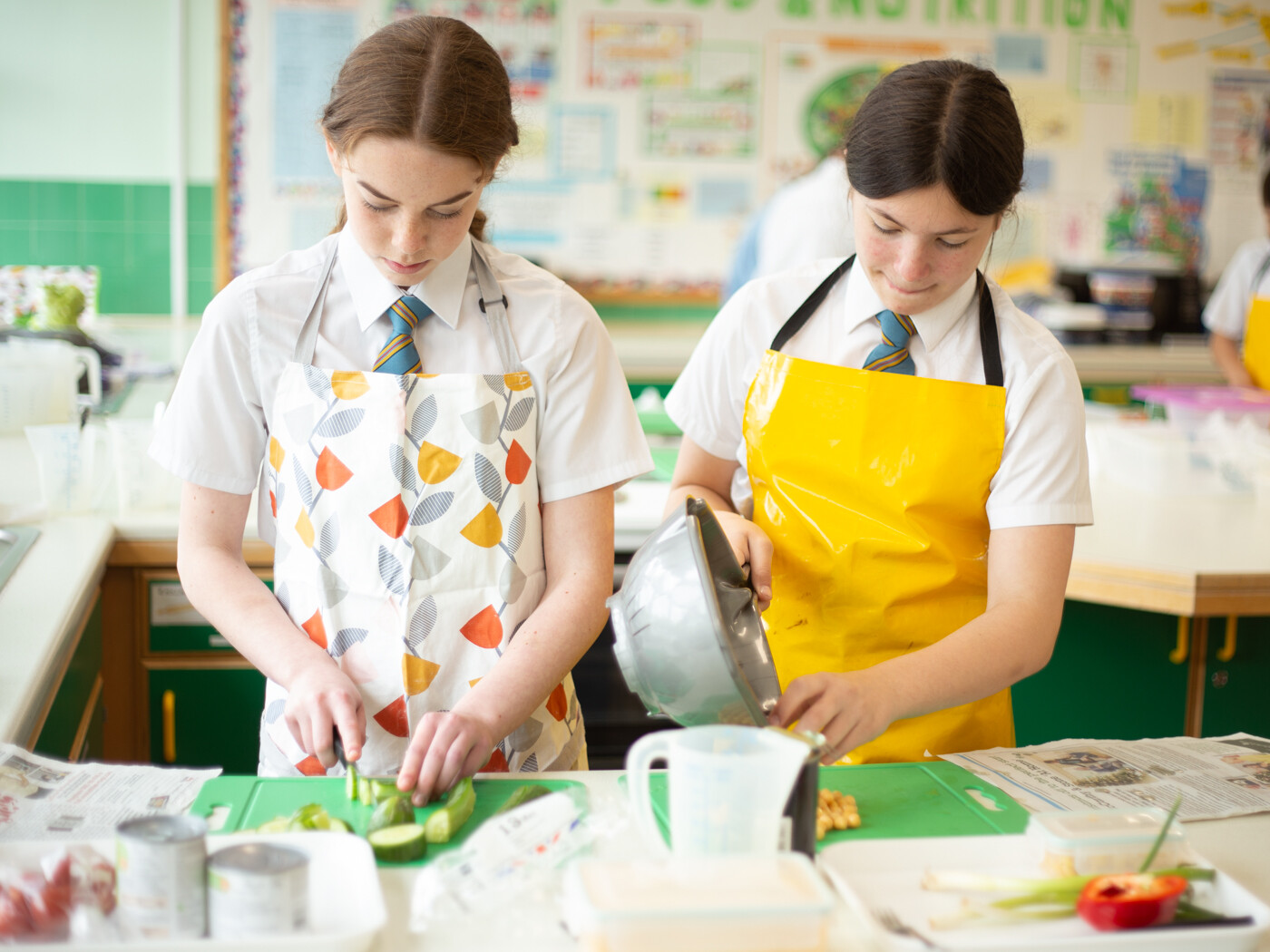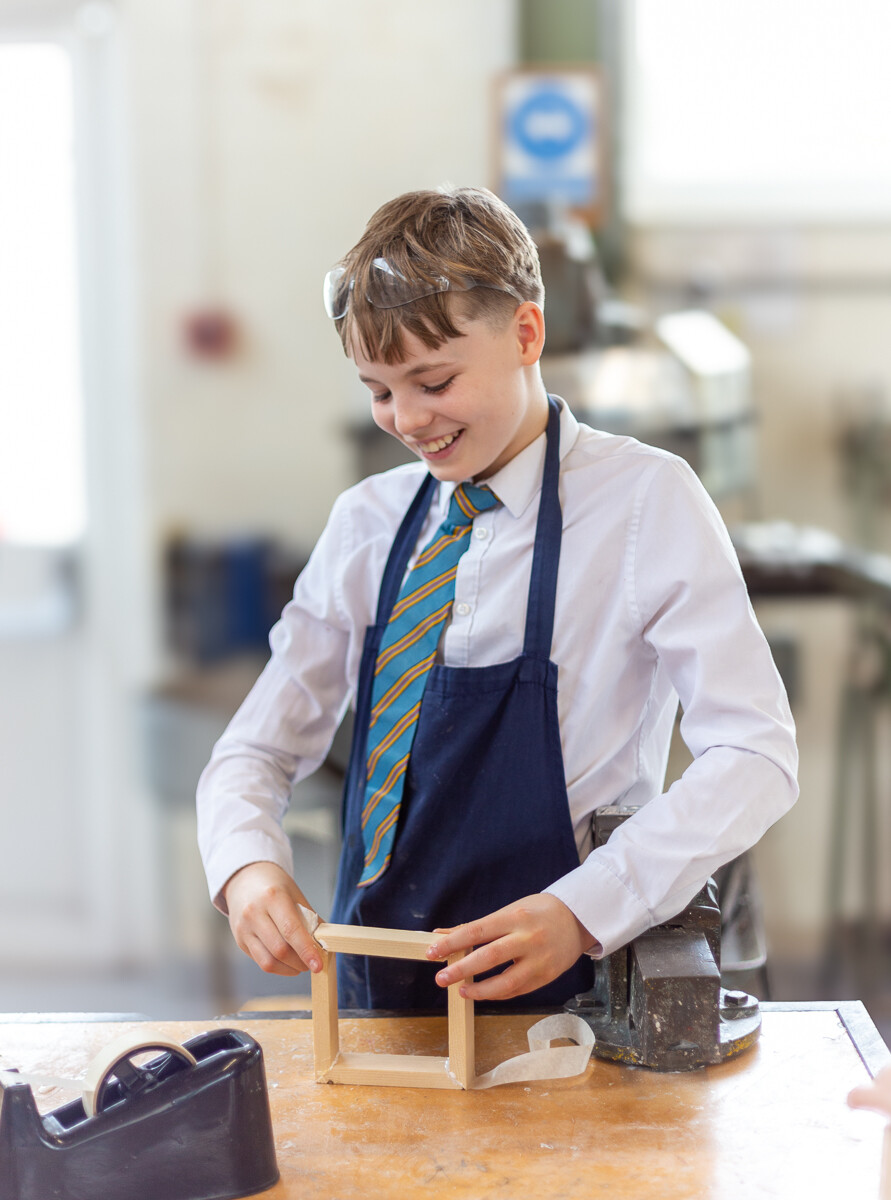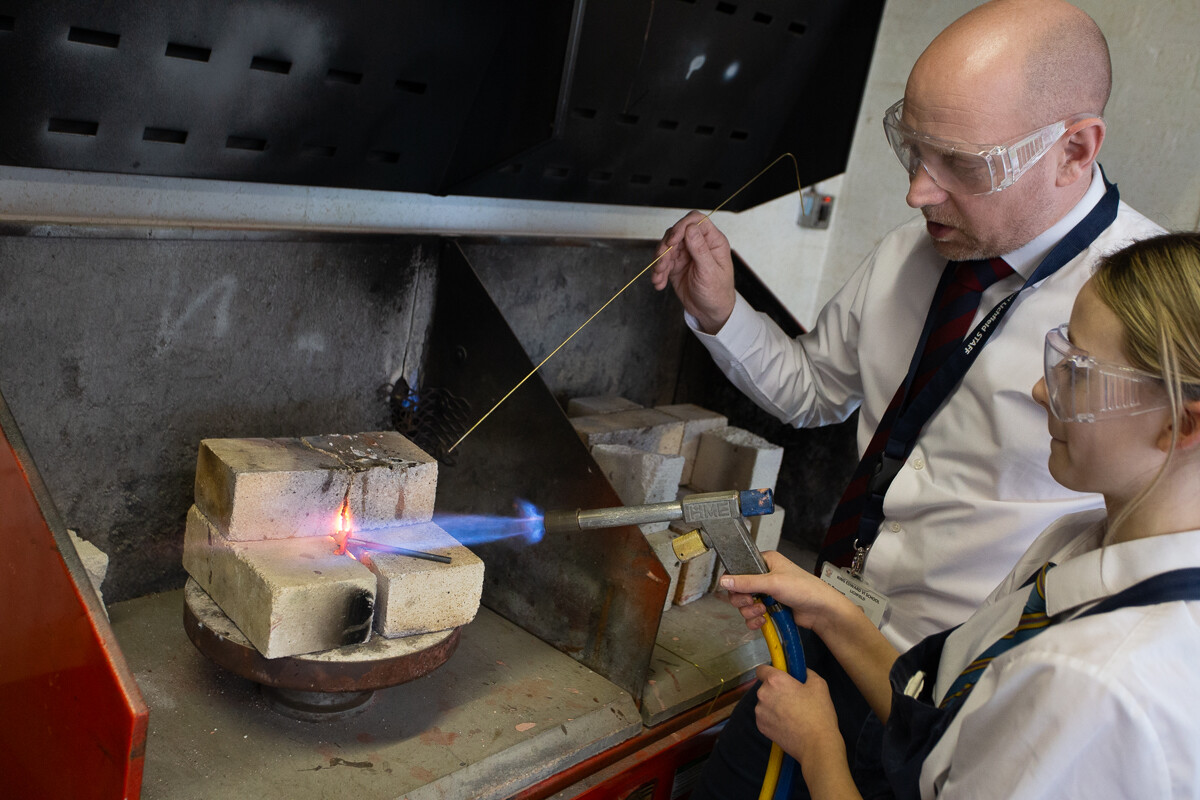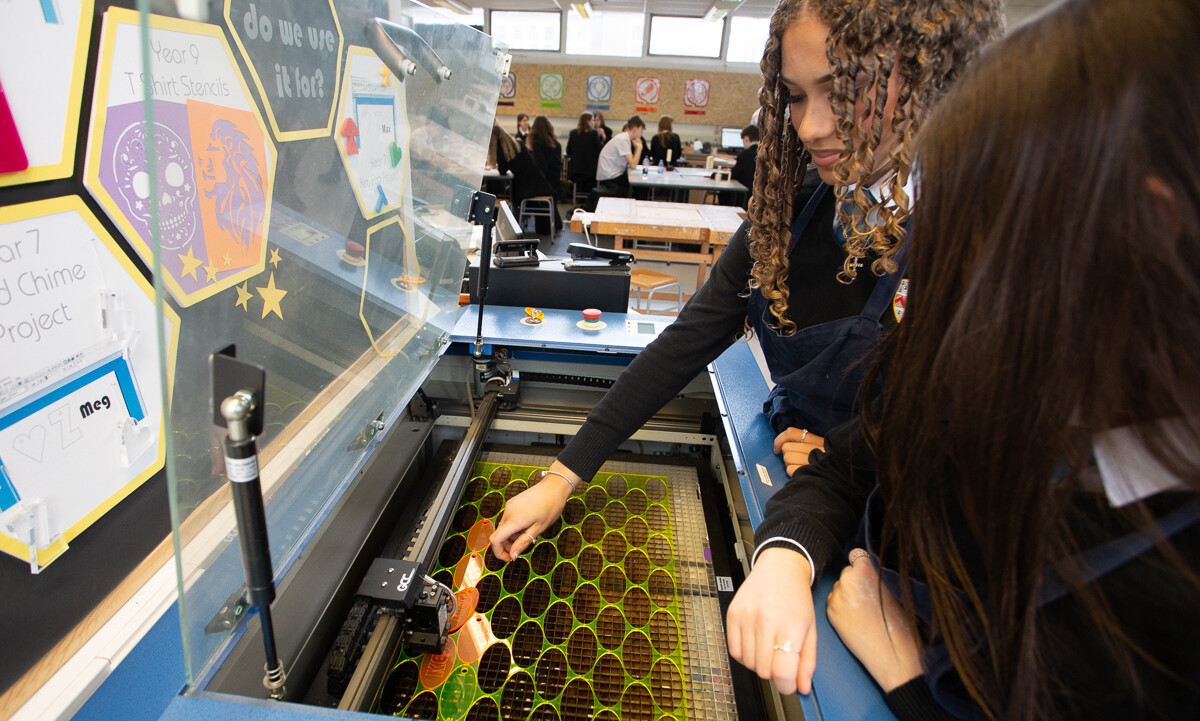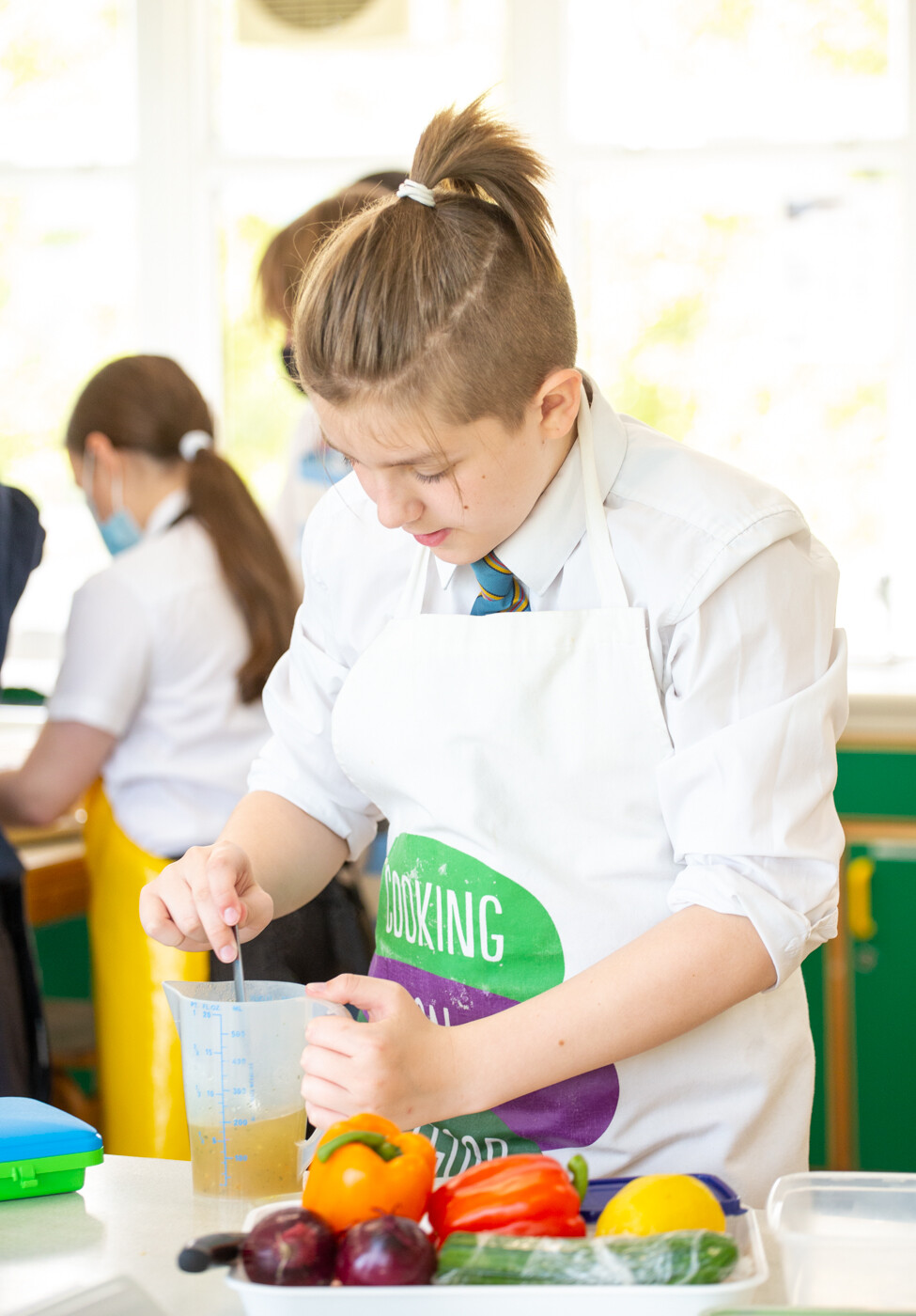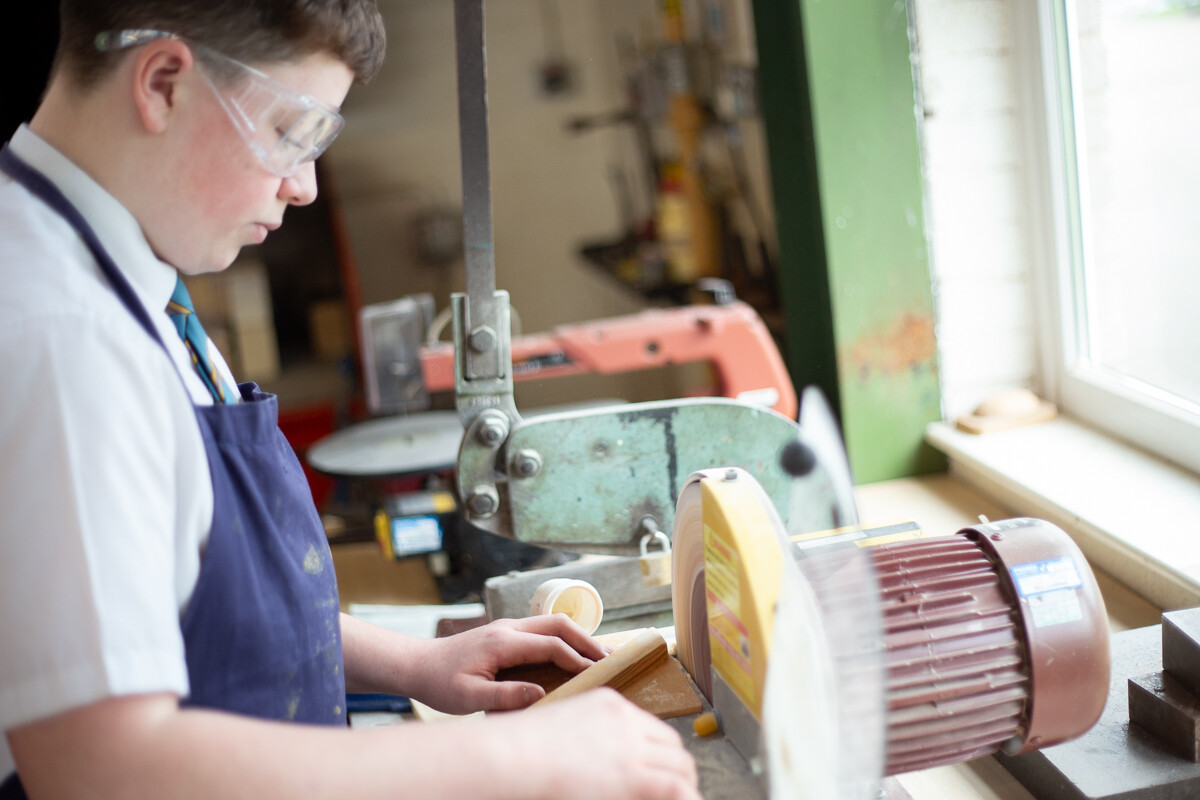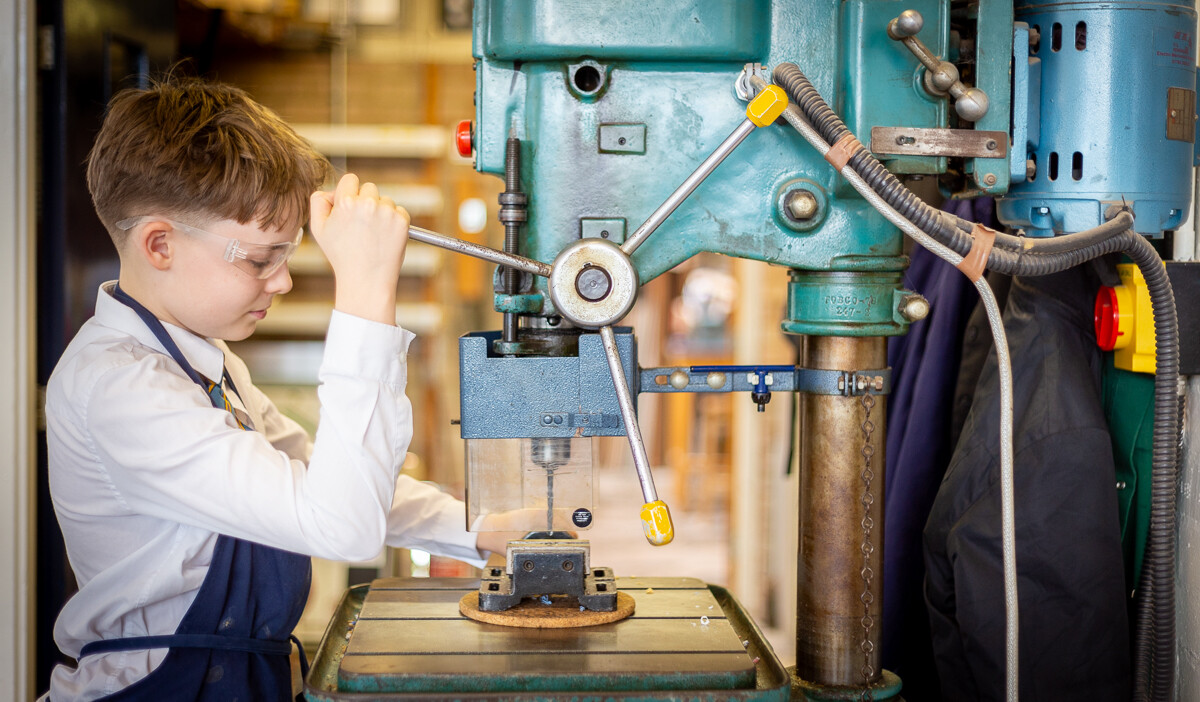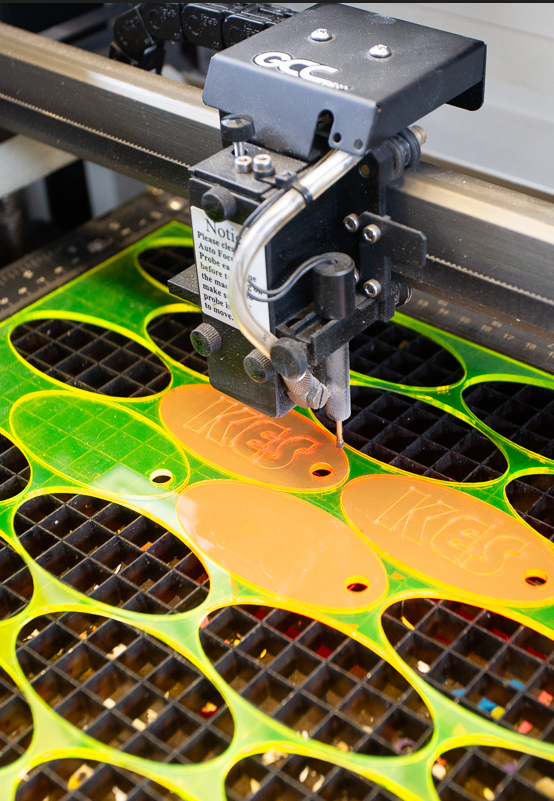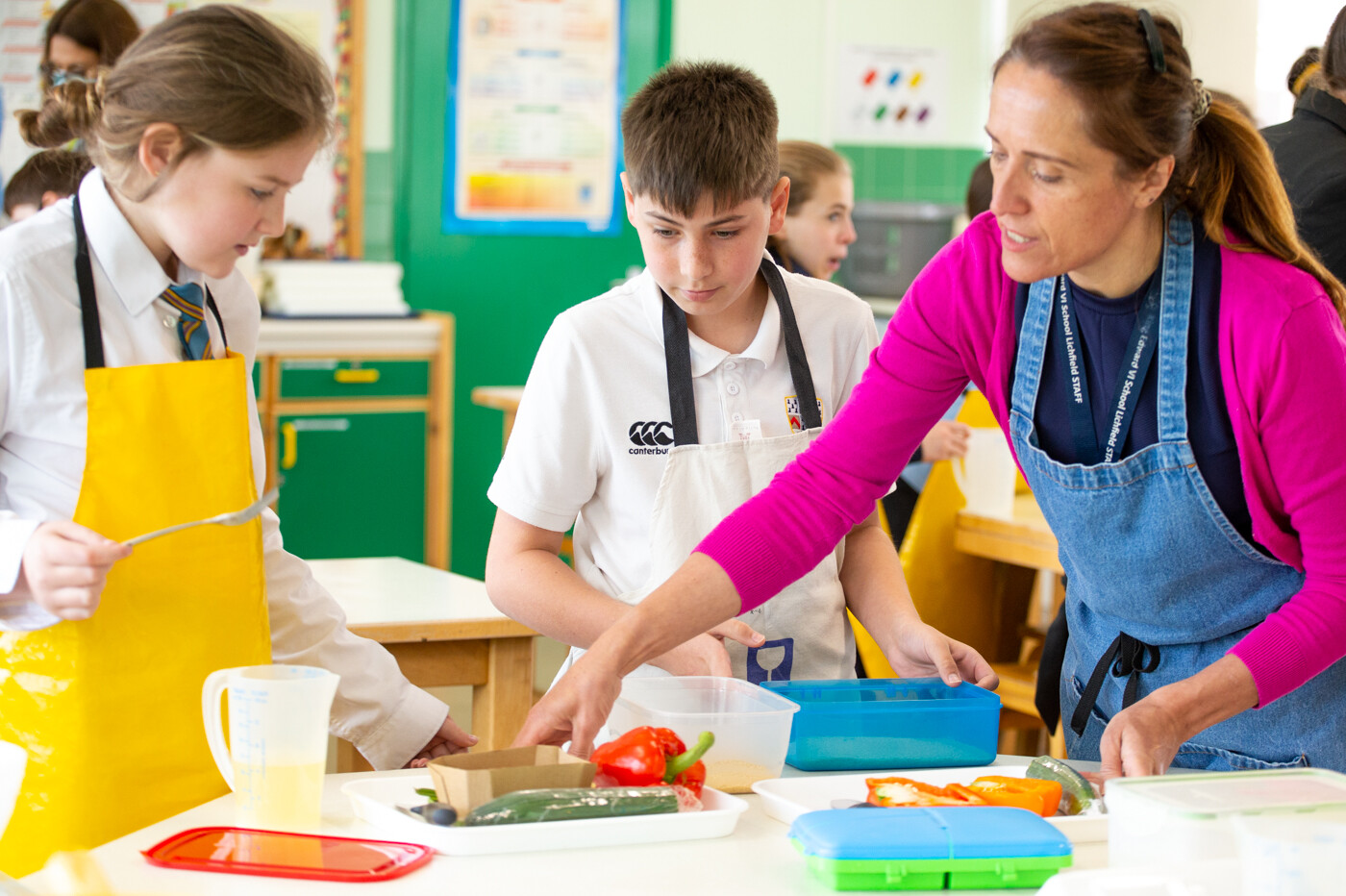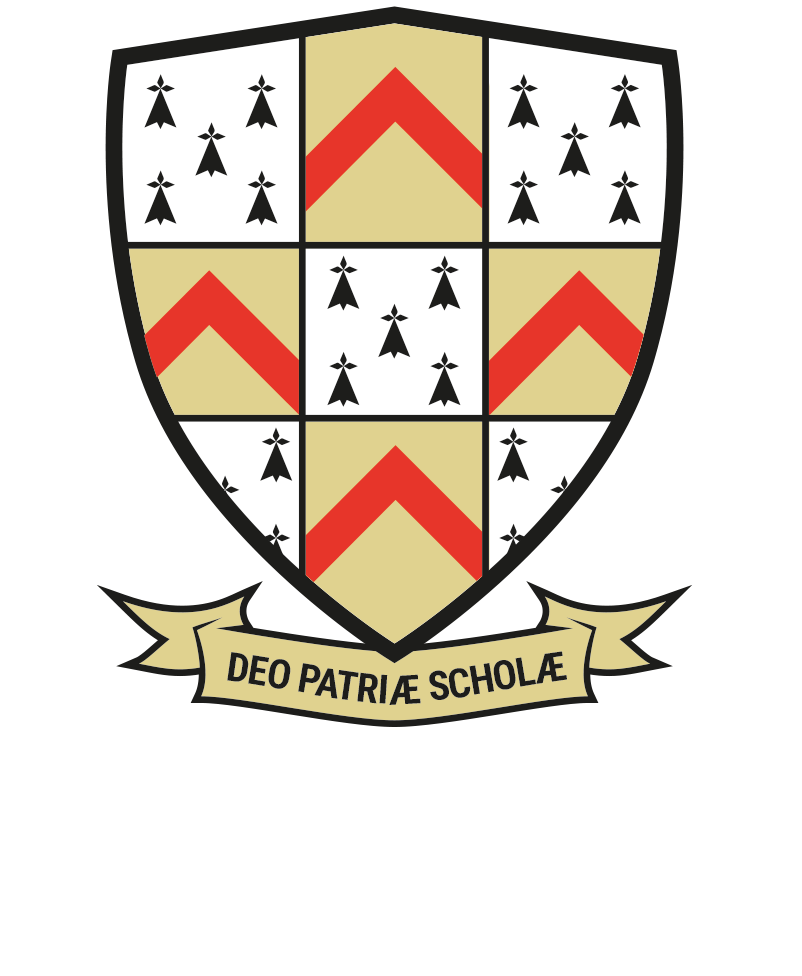Design and Technology
Curriculum overview
overall Intent
Design and Technology encourages students of all ages, ability and backgrounds to think about the world they live in and how products can be designed to positively improve quality of life. Students will analyse existing products and consider wider issues such as social, cultural, moral, economic and ethical factors. Learners will study the impact products have on the environment, they will develop knowledge of materials and acquire a broad technical understanding of manufacturing processes and of new and emerging technologies.
Our vision within Food Preparation and Nutrition is to equip students with the knowledge and skill to make decisions about their diet, nutrition, health and well-being. We believe by supporting a knowledge rich curriculum, there is no better way of achieving this than by ‘doing’. Students have frequent practical demonstrations and opportunities to produce affordable healthy dishes that they can replicate with their families at home.
Their design journey starts, but doesn’t end here. We aim to encourage students to develop problem solving skills, learn how to work as part of team,= and have the self-confidence to work independently. But above all that failure often leads to success. We believe that these core human qualities will serve to equip our students with attributes that make them employable and self-sufficient in later life.
We aim to provide students with a learning experience that they will never forget. One that nurtures their talents and that presents new and exciting opportunities, which one day could be seen as the start of something that shaped the rest of their lives.
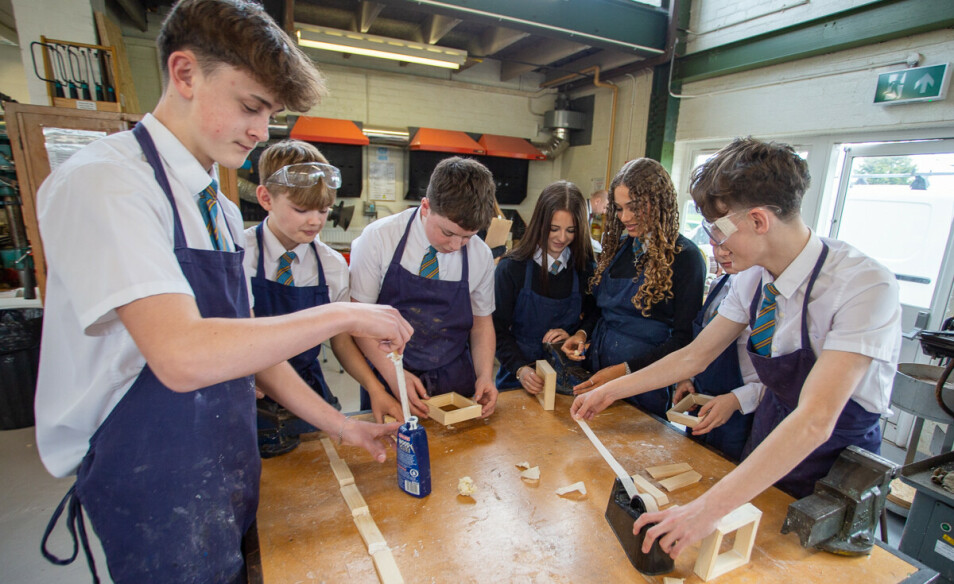
Embedding Literacy
In Design and Technology, students use a range of literacy skills to explore research material, annotate design ideas, develop design specifications, communicate manufacturing processes and review design outcomes. They use a range of technologies and key technical principles within Food Preparation and Nutrition, Fashion and Textiles, Graphic Products, Design Engineering and Product Design. All of which have very specific language and key terminology that students are required to apply in their written work. It is essential that students collaborate with their peers and they develop strong communication skills across the material areas. Oracy, listening, writing and reading are all critical skills that underpin the ability to access knowledge and apply key concepts across the Design and Technology curriculum.
Encouraging Independence
In Design and Technology we teach the importance of being able to work independently as well as provide opportunities to develop independent learning skills.
Creating independent learners is important for a number of reasons. Students should be prepared for the world of work. It is important that we encourage students to have the confidence to believe that they can figure things out for themselves and that failure is part of learning. Students are taught to respect others’ opinions but also have the confidence to stand strong on what they know and believe. Independent learners are able to learn alone but can also self-monitor their learning. This is an essential quality of students embarking on non-examined assessment at GCSE and A Level.
The Design and Technology curriculum has been designed to provide a gradual transition from teacher guided activities to student driven learning. In Years 7 - 9 students rotate through various material areas where they build a strong foundation of knowledge on which they can personalise their work. The ‘I do, you do’ framework enables students to observe the expertise of their teachers and then develop their own design ideas that reflect the client profile.
As they transition from Key Stage 3 into Key Stage 4 and 5 students are required to complete a non-examined assessment. This component requires students to independently design a product that meets the needs of their chosen primary user or client. Students adopt a user centred design approach in which they independently work alongside their client outside of lessons as well as seek opportunities to observe how people interact with products in the real world and to liaise with industry experts. Teachers encourage a growth-oriented mindset, focusing on dedication, persistence and learning from setbacks. The use of ICT to enhance the design process is essential and having the determination to become proficient in the use of Computer-Aided Design (CAD) is often something that requires time and commitment outside of lessons for them to master. The use of the internet to explore and research information is critical to Design and Technology. Students are taught how to access secondary sources of information, question the reliability and how it can be used to enhance their work.
Key Stage 3 Design and Technology
Design and Technology is an inspiring, rigorous and practical subject. Using creativity and imagination, pupils design and make products that solve real and relevant problems within a variety of contexts, considering their own and others’ needs, wants and values. They acquire a broad range of subject knowledge and draw on disciplines such as mathematics, science, engineering, computing and art. Pupils learn how to take risks, becoming resourceful, innovative, enterprising and capable citizens. Through the evaluation of past and present design and technology, they develop a critical understanding of its impact on daily life and the wider world. High-quality design and technology education makes an essential contribution to the creativity, culture, wealth and well-being of the nation.
Design and Technology National Curriculum Key Stage 3 2013
GCSE Design and Technology
GCSE Design and Technology will prepare students to participate confidently and successfully in an increasingly technological world. Students will gain awareness and learn from wider influences on Design and Technology including historical, social, cultural, environmental, and economic factors. Students will get the opportunity to work creatively when designing and making and apply technical and practical expertise.
Students will study core technical and designing and making principles, including a broad range of design processes, materials techniques and equipment. Students will have the opportunity to study specialist technical principles such as woods, metals, plastics, papers and boards and design engineering in greater depth.
Design and Technology GCSE (9-1) AQA
GCSE Design and Technology - Big and Small Questions
GCSE Food Preparation and Nutrition
Students studying GCSE Food Preparation and Nutrition will gain the knowledge, understanding and skills required to cook and apply the principles of food science, nutrition, and healthy eating. It encourages students to cook and enables them to make informed decisions about food nutrition. It allows them to acquire knowledge in order to be able to feed themselves and others affordably and nutritiously, now and later in life.
The specification has been designed to enable us to concentrate on innovative delivery of the course whilst creating a balance between practical and theoretical knowledge and understanding. The layout of the context into six areas promotes flexibility of delivery, and releasing two tasks for each of the assessments that constitute the non-examination assessment will ensure learners are able to complete assessments suitable to their needs and that of our school.
The six areas of study are:
- Demonstrate effective and safe cooking skills by planning, preparing and cooking a variety of food commodities whilst using different cooking techniques and equipment
- Develop knowledge and understanding of the functional properties and chemical characteristics of food as well a s sound knowledge of the nutritional content of food and drinks
- Understand the relationship between diet, nutrition and health, including the physiological and psychological effects of poor diet and health choices
- Understand the economic, environmental, ethical and socio-cultural influences on food availability, production processes, diet and health choices
- Demonstrate knowledge and understanding of functional and nutritional properties, sensory qualities and microbiological food safety consideration when preparing, processing, storing, cooking and serving food.
- Understand and explore a range of ingredients and processes from different culinary traditions to inspire new ideas or modify existing recipes
Food Preparation and Nutrition GCSE (9-1) Eduquas
Staff
The following members of staff form the Design and Technology department at King Edwards:
| Staff Member | Job Title |
|---|---|
| Mr N Barratt | Head of Department |
| Miss C Carvajal | Teacher of Design and Technology |
| Mr P Chirkure | Teacher of Design and Technology |
| Miss Z Love | Teacher of Design and Technology |
| Mrs C Sheasby | Lead Teacher for Food Preparation and Nutrition |
| Mrs R Slater | Teacher of Food Preparation and Nutrition |
| Mrs E Taylor | Design and Technology Technician |

